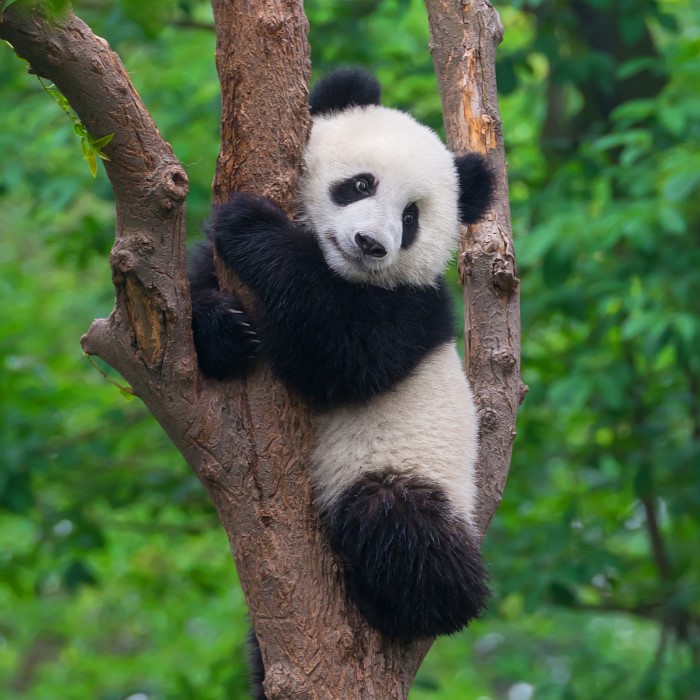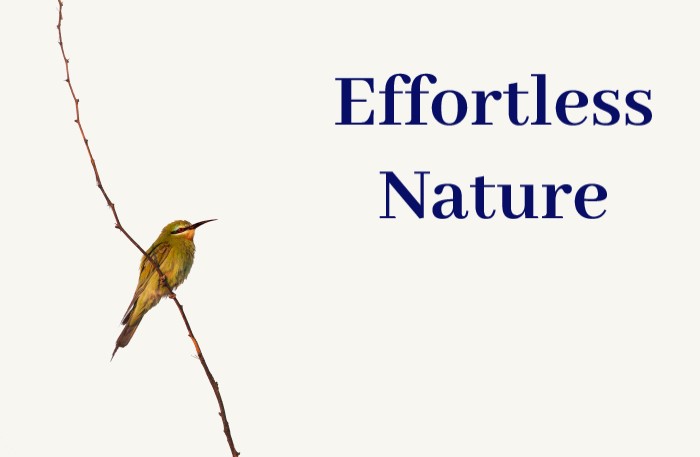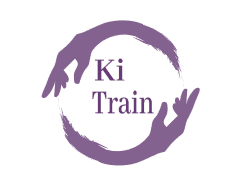We were brought up to think that accomplishing something requires a struggle. The first rule that governs human society is No Pain, No Gain. The traits of an achiever’s path have included working hard, studying hard, and living hard. But is it accurate to say that resources are scarce and that the only way to succeed in life is through hardship? It might be partly true that we do have limited resources because the Yin Yang sign conveys the concept of a closed system.
The universe is shaped by our beliefs. Effortless living or hardship are merely two sides of the same coin. We deserve to choose how we live.
Learning from Nature
Nature always finds a way to balance, inevitably and repeatedly. We know that collaboration is the basis for life’s evolution. Every complex living thing is a cosmos consisting of trillions of cells that are supposed to coexist harmoniously, renewing, regenerating, and healing themselves.
For instance, we notice in a forest that the trees coexist with one another, provide for one another, and accept each other as a single unit. You witness harmony at its best in a forest. Perhaps this explains why we typically feel at peace after spending some time in a forest. The collective power of all trees becomes a huge, fully charged battery.
Then there are the animals. Not the zoo animals that suffer from loneliness and depression as a result of being imprisoned. I am referring to wild animals, or, why not, even pet animals, that roam relatively freely.
Animals are very special and intelligent. We think we are more intelligent and wiser but we don’t show that in our day-to-day life. Animals hunt or steal (take food) for survival. Humans hunt for pleasure.
Why don’t the Bears wear Louis Vuitton?
Although the subject matter’s title may seem sarcastic, it refers to people who are emotionally devoted to their possessions. Detachment is more important than anything else for effortless living because attachment leads to stagnation and the failure to recognize that everything is impermanent.
Animals not only do not develop sentimental attachments to worldly possessions, but they also let go of their kin. They permit their cubs freedom once they can survive and obtain food for themselves on their own. On the other side, how many people do you know who are still dependent on their parents in their forties? This is typically because their parents are unable to let them go.
Animals do not develop attachments to material possessions or have a habit of collecting stuff. They do not have designer stores or expensive cars. They do not put on outfits for an edge over other animals.

Furthermore, they do not moan about the weather. They only adjust to the environment’s constant change.
Some of them are so flexible that they have been blessed with the ability to anticipate, enabling them to predict weather changes. This allows them to find shelter at the proper time.
Although it is impossible to say that all people fight and struggle to reach a comfortable life, the vast majority do because they live in a society marked by injustice and power struggles.
A rigid set of social rules is produced by formal, traditional education and a competitive work environment. The momentum of blindly adhering to the rules is accelerated to its maximum speed. The rules unfolding starts in the first grade of school and continue through the first years of employment. Those who progress through life rapidly discover that exploring fresh paths of effortless living may be against the usual rules.
Kids Are Just Awesome
Children approach life in an unconventional manner. Through trial and error, they learn about the adult world. The social norms begin to be forced on them during this time. The not-so-simple rules of life are about to arrive. You must conform to your family, religious, societal, and fashion trends in order to be a good citizen. In other words, partake in the universal daily struggle of life while satisfying a sense of social belonging.
Love and joy are among the most effortless human emotions to experience. Children are lovable, cheerful beings. All day long, a child will play carelessly. Furthermore, a child will not do something they do not enjoy. They will just reject it openly.
Adults are nowadays taking matters too seriously to have fun. They downplay their playful nature. Responsibility becomes the main driver. What they accomplish now matters more than how they get there. Joy and the desire to take action are no longer necessary.

Learning from Earth
Planet Earth is a living organism. The planet goes through an infinite cycle of creation and destruction due to continuous exchange between yin and yang energies, which results in constantly shifting patterns. The full process is often unnoticed by the relative insensitivity of human perception.
When we describe nature’s harmony, our eyes soften and we see in our imagination a blue sky reflected in a beautiful, calm lake. The song of birds echoes from a nearby forest. A soft warm breeze lightly brushes our faces, and we smile as we see the lion lying down with the lamb.
This image represents a recipe of potential decay. The lion will die of starvation, the sheep will overpopulate the area and destroy the tall grasses that anchor the soil. The reach-top soil will be washed away, the lake will dry completely and the sheep will die unnourished. The trees will die, and the only sound we will be hearing is the sound of wind in a cold and lifeless desert.
Everything flows through the distorted filter of individual ego, and often humanity is plagued with a nearsighted tunnel vision. We sharply separate harmony and conflict, defining harmony as soft and good and conflict as harsh and evil; act on the pain and fever like they are independent from their cause. We want to get rid of them as fast as possible without realizing that this is a blind escape plan that may hurt us even more.
We do not comprehend the all-encompassing harmony of nature. Harmony does not mean that there is no conflict or crisis. The dynamic spiral of existence does embrace both extremes.
Conflict is the beginning of harmony, just as death is the beginning of life. Filled with conflict, the flow of nature remains flexible enough to adapt and change, bringing all creation back into balance.

Self-Healing is Effortless
The human body has a built-in mechanism for healing itself. At times, it is more crucial to avoid some of our existing habits that obstruct the self-healing process. In other words, the key to healing is not what we do, but rather what we abandon doing.
Qi Gong and traditional Chinese medicine both approach health assessments from a pattern perspective. Understanding the process is considered more valuable than the evidence of a sudden appearance of an illness symptom.
Nature follows patterns. The human body is not distinct from it. Ultimately, understanding that we are not isolated from the environment will allow us to be more attentive to what is happening around us.
In a nutshell, all we need to do is allow healing to take place. A physiological illness occurs when an imbalance occurs. All that is needed is a little patience to observe and study the illness within the context of a process.
This will offer us the chance to use both external and internal patterns to regain balance and reverse the disease.
The above article has been published in the Masters of Energy Wellbeing Magazine. Press HERE to get instant free access now.
